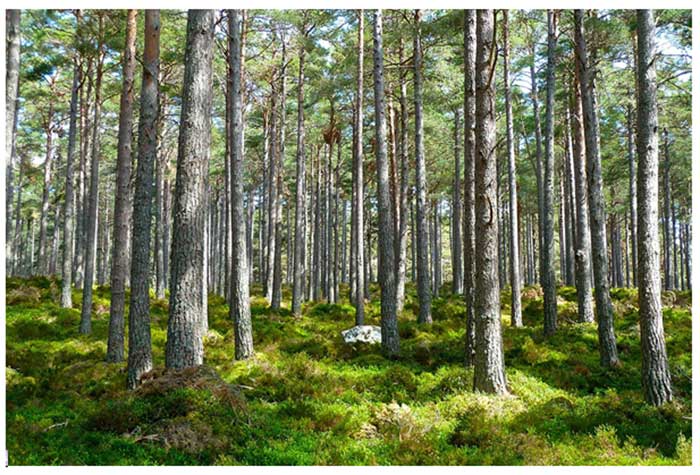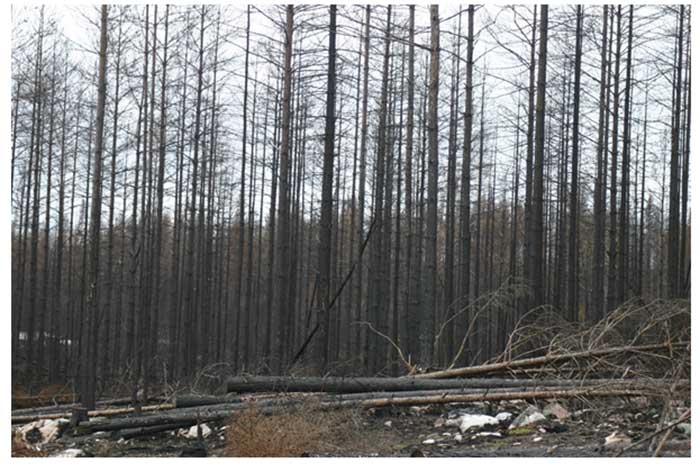Press release -
If what I love disappears
“The fire in Västmanland in 2014 devoured the places where people have their memories, but as bearers of memories, the places remain intact,” says Igor Knez, researcher in memory at the University of Gävle.

Our surroundings are important in defining who we are, an importance that develops in significance over time as we build relations with the surrounding landscape.
The researchers could see that individuals often select certain specific places that become important to connect emotions and memories to. Individuals, events, traditions and love relationships were all connected to places.
“Individuals store so much information in the bonds to places and the social dimension is important here; the memory of socialising with your nearest and dearest, but also the aesthetic experience of the landscape,” Igor Knez says. “The stronger the emotional bond to the place, the higher the well-being experienced when visiting the place. Individuals return to the place to recharge one’s batteries and to increase their well-being.”
But if everything disappears

But if everything disappears, which is what happened in this large fire, what happens to the emotional bonds then?
Researchers have identified two components. One component is the fact that one loves the place and experiences great wellbeing when visiting it, and the second component is the memories associated with the place.
“After the fire this sense of wellbeing linked to visiting the place has decreased dramatically. One doesn’t like it any longer and doesn’t want to see it. However, positive memories and experiences were retained. My memories are connected to this place in my mind, and here I own this place. It is a part of me, and it doesn’t disappear,” Igor establishes.
Should I stay or should I go?
If keeping your memories intact is the most important thing, then you had better move.
“But you may choose to stay and heal. I believe that we experience healing, but it depends on the individual; some recreate and return, others find new places while yet another group pack their bags and leave.
Unique study
There are no other studies on real natural disasters with results like these. One hypothesis could have been that as everything has been destroyed in the fire, everything disappears.
“But it doesn’t. We keep those memories and thoughts as they are a part of our self, our identity. We strive to find a way to restore and maintain our mental equability, and for this reason we keep the place as a memory,” Igor Knez explains.
The study was carried out one year after the fire, and Igor says that it will be interesting to do a follow-up three years later. Will those who suffered this loss wait for the forest to grow up again, will they look for new places or will they leave?
The research group is interdisciplinary and consists of an environmental communicator, a psychologist and a landscape architect. The interdisciplinary structure contributes towards developing a greater understanding for this subject.
Article ScienceDirect
För more information, please contact:
Igor Knez, professor in psychology, University of Gävle
Phone: 026 -648111
Email: igor.knez@hig.se
Topics
- Crises
Categories
- research
- natural disasters
- memory research
- igor knez
- importance of sites
- university of gävle
Education and Research at a Scenic Campus.
The University of Gävle has approximately 17 000 students, more than 50 study programmes and second-cycle programmes, about 1 000 courses in humanities, social and natural sciences and technology.
Research Profiles
Built Environment and Health-promoting Working Life are the general research profiles of the higher education institution. Important parts included are Spatial Planning with a specialisation in Sustainable Built Environment and Musculoskeletal Disorders with the purpose to prevent work-related injuries. In 2010, the higher education institution received permission to carry out third-cycle programmes in the profile area of Built Environment.
The higher education institution has applied for permission to carry out third-cycle programmes in technology, humanities and social sciences.
